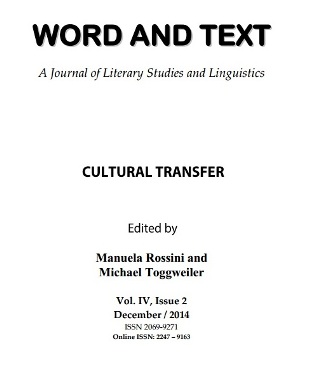A Word: ‘Palaver’ and Its Transferal Residues
A Word: ‘Palaver’ and Its Transferal Residues
Author(s): Mira ShahSubject(s): Language and Literature Studies
Published by: Universitatea Petrol-Gaze din Ploieşti
Keywords: cultural transfer; palaver; virus; lexicography; etymology; transferal residues; rhetorics; semantics
Summary/Abstract: The word ‘palaver’ is colloquially associated with useless verbiage and the nuisance of a tediously long, aimless and superfluous debate. At the same time, it insinuates an uncivilized culture of discourse beyond reason and it appears to be of vaguely exotic origin but still firmly set in the European lexicon. Yet behind this contemporary meaning there lies a long history of linguistic and cultural transfers which is encased in a context of different usages of language and their intersections. By tracing the usage and semantics of ‘palaver’ in various encyclopaedias, glossaries and dictionaries of English, French, German, Portuguese and Spanish, the following article explores the rich history of this word. Moreover, it also regards the travelling semantics of the term ‘palaver’ as a process of cultural transfer that can be likened to the microcellular workings of a (retro)virus. Viral reproduction and evolution work through processes of transfer that enable the alteration of the host to adjust it to the replication and reproduction of the virus. In some cases, these processes also allow for the mutation or modification of the virus, making it suitable for transfer from one host to another. The virus is thus offered here as a vital model for cultural transfer: It not only encompasses the necessary adoption and adaption of contents or objects of cultural transfer in different contexts. It contributes to a conceptual understanding of the transferal residue that the transferred content is endowed with by its diversifying contexts. This model thereby surpasses an understanding of cultural transfer as literal translation or transmission: it conceptualizes cultural transfer as an agent of evolutionary processes, allowing for mutational effects of transfer as endowment.
Journal: Word and Text, A Journal of Literary Studies and Linguistics
- Issue Year: IV/2014
- Issue No: 02
- Page Range: 67-83
- Page Count: 17
- Language: English

